Planning a wedding is an exciting yet intricate process, especially when it comes to honoring the rich traditions of a Sri Lankan ceremony. Rooted in centuries-old customs, Sri Lankan weddings are a beautiful blend of culture, family, and celebration(Dream Sri Lankan Wedding). This guide will walk you through the key aspects of organizing a traditional Sri Lankan wedding, including rituals, attire, and venue selection, to ensure your special day is as memorable as it is meaningful.
Understanding the Traditional Sri Lankan Wedding
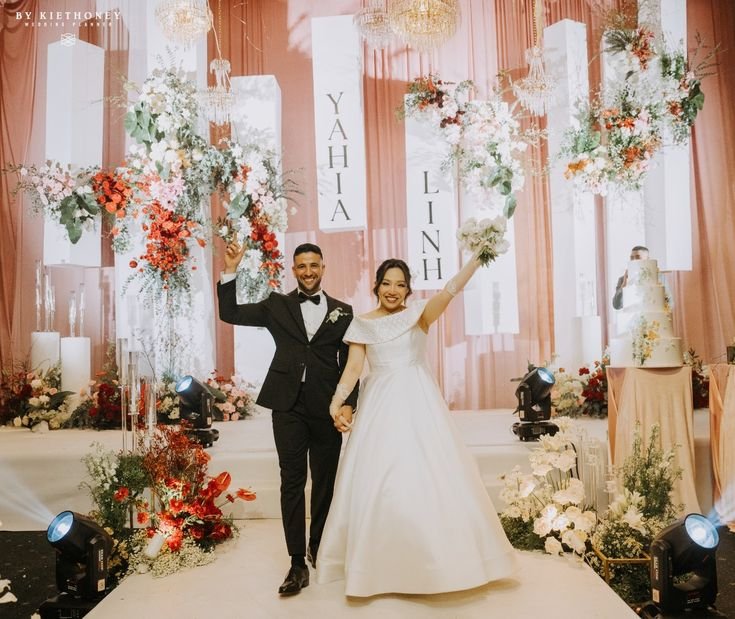
A Sri Lankan wedding typically combines cultural rituals with personal touches that reflect the couple’s story. The most common type is the Poruwa Ceremony, rooted in Sinhala and Buddhist traditions. Tamil and Muslim weddings also have distinct customs that are equally vibrant and meaningful. Regardless of the cultural background, the focus remains on community, heritage, and celebration.
Rituals to Include in Your Wedding
The Poruwa Ceremony
The Poruwa ceremony is the heart of a traditional Sinhala wedding. It takes place on an ornate platform known as the Poruwa, symbolizing unity and new beginnings. The ceremony is steeped in rituals, including:
- Exchanging Betel Leaves: A gesture of respect and gratitude to the couple’s families.
- Tying the Knot: The officiant ties the bride’s and groom’s pinky fingers together with a golden thread, symbolizing their union.
- Breaking a Coconut: This act is believed to invoke blessings for a prosperous married life.
Hindu Wedding Rituals (Dream Sri Lankan Wedding)
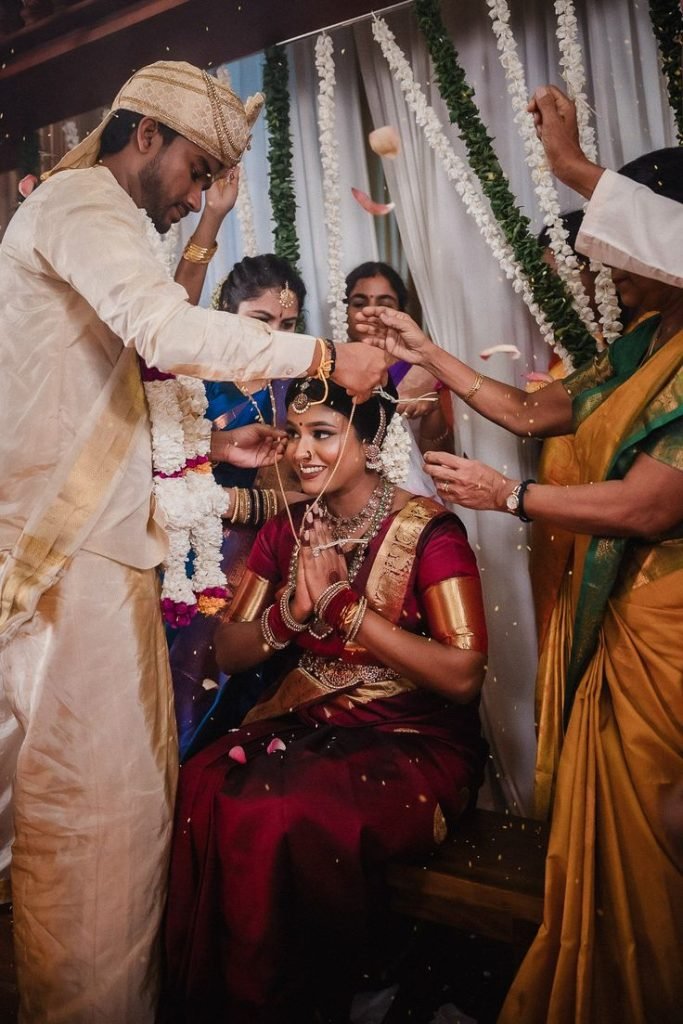
For Tamil Hindu weddings, key elements include:
- Kanyadaanam: The bride’s family gives her away to the groom, symbolizing trust and blessings.
- Tying the Thali: The groom ties a sacred thread around the bride’s neck, signifying their marriage.
- Agni Pradakshina: The couple walks around a sacred fire, sealing their vows.
Nikah Ceremony
For Muslim weddings, the Nikah is a solemn and sacred ceremony officiated by a religious leader. The bride and groom exchange vows and sign a marriage contract in the presence of witnesses. Celebrations often include a Walima, a grand feast to honor the union.
Choosing the Perfect Attire
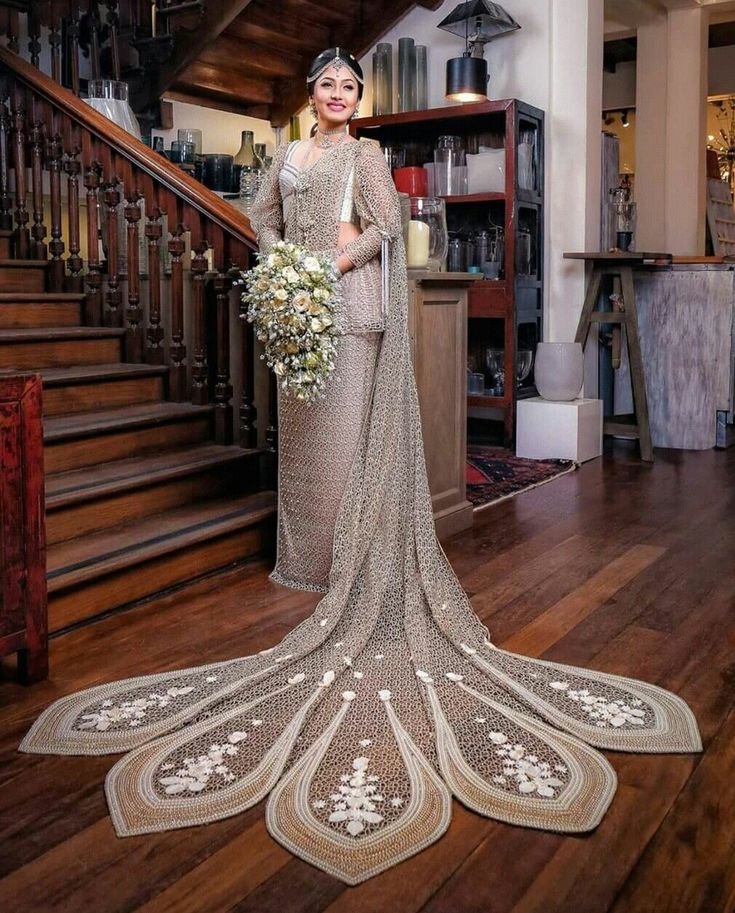
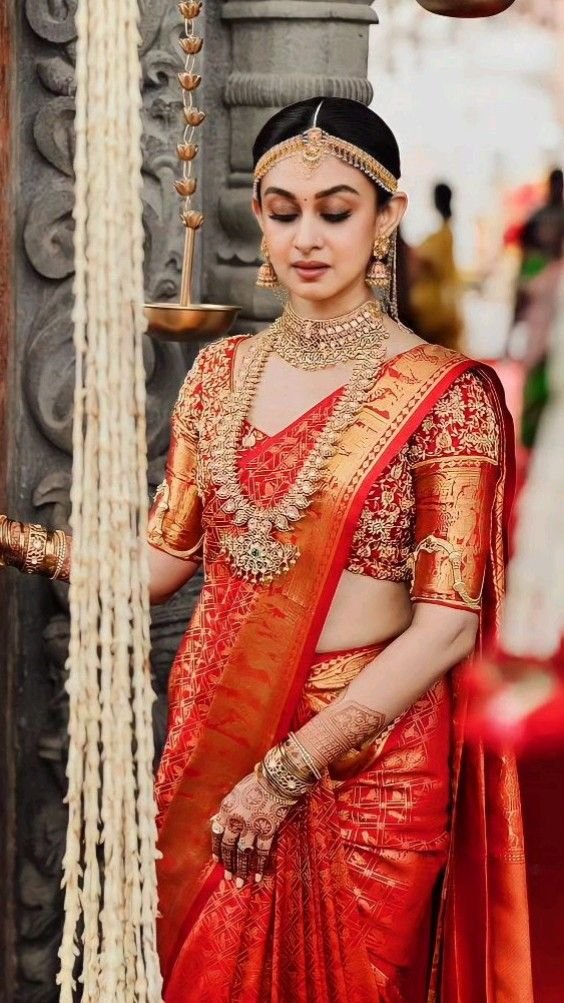
For the Bride
- Kandyan Saree: Sinhala brides traditionally wear the Kandyan saree (Osariya), which exudes elegance with its intricate draping and embellishments. Paired with gold jewelry, it’s a timeless choice.
- Saree for Tamil Brides: Tamil brides often opt for silk sarees in vibrant hues like red and gold, adorned with temple jewelry and floral garlands.
- Hijab for Muslim Brides: Muslim brides may choose beautifully embroidered outfits with matching hijabs, combining tradition with modern aesthetics.
For the Groom
- National Attire: Sinhala grooms often wear traditional Kandyan outfits, complete with a turban and sash.
- Veshti for Tamil Grooms: A veshti paired with a silk shirt is a classic choice.
- Sherwani or Suit: Muslim grooms may wear a sherwani or tailored suit, adding a regal touch to the occasion.
Selecting the Ideal Venue
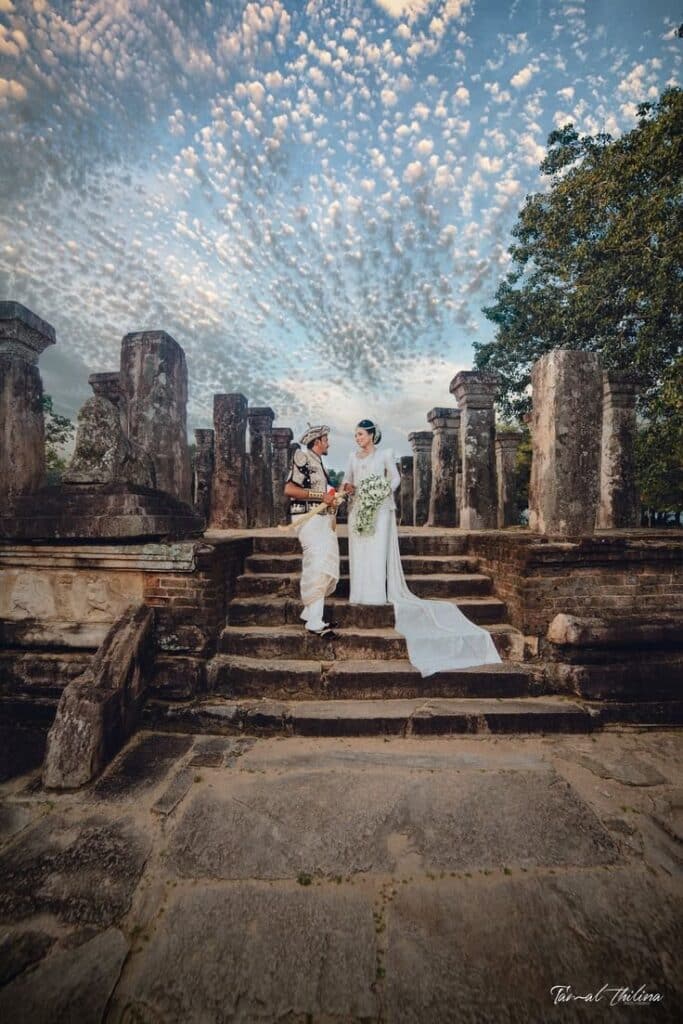
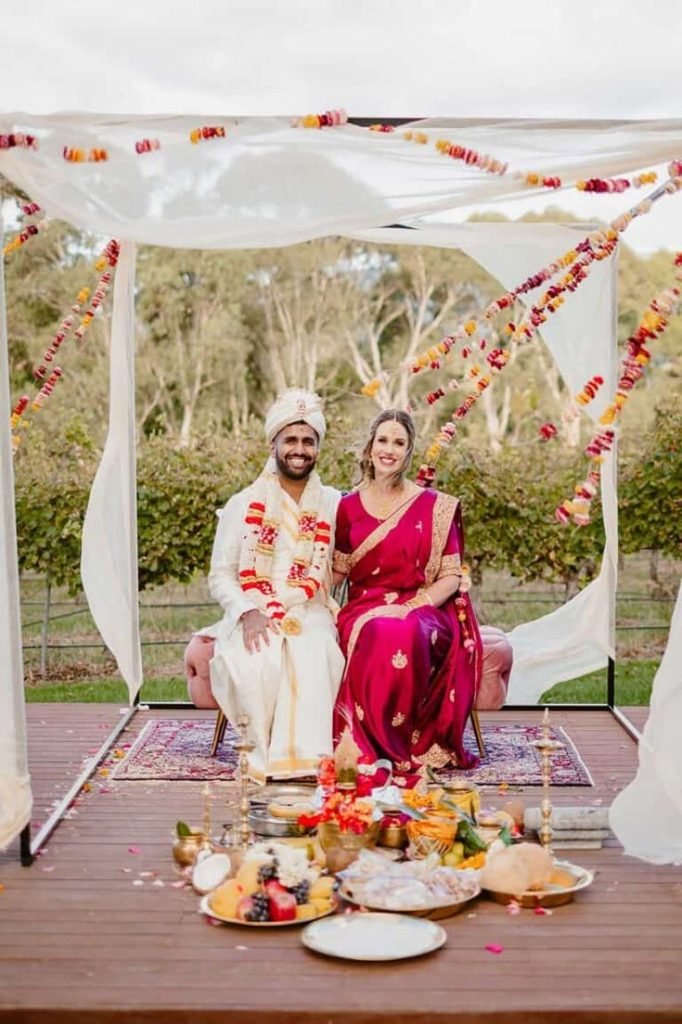
Sri Lanka’s breathtaking landscapes offer endless possibilities for wedding venues. Here are some popular options:
Heritage Hotels
Many couples opt for historic venues like the Galle Face Hotel in Colombo or Amangalla in Galle, which combine old-world charm with luxurious amenities.
Outdoor Locations
For nature enthusiasts, beach weddings in Bentota or hill-country celebrations in Nuwara Eliya provide picturesque backdrops. Botanical gardens like the Peradeniya Gardens in Kandy are also excellent choices.
Temples and Banquet Halls
Couples looking for a traditional setting can choose temples or spacious banquet halls that accommodate cultural rituals and large gatherings.
Adding Personal Touches
While traditions form the foundation of a Sri Lankan wedding, incorporating personal elements can make your day truly unique:
- Customized Invitations: Reflect your style with bespoke wedding invitations that combine modern designs with traditional motifs.
- Family Heirlooms: Include family jewelry or heirlooms in your bridal attire for sentimental value.
- Fusion Menus: Serve a mix of traditional Sri Lankan dishes like hoppers and sambol alongside global favorites to cater to diverse tastes.
Managing the Wedding Timeline
Planning a wedding involves coordinating multiple aspects. Here’s a timeline to help you stay organized:
6-12 Months Before
- Choose your wedding date and venue.
- Book a photographer and videographer.
- Finalize your guest list.
- Start shopping for bridal and groom attire.
3-6 Months Before
- Send out invitations.
- Arrange for hair and makeup trials.
- Confirm catering and floral arrangements.
- Plan pre-wedding events like the Mehendi or engagement party.
1-3 Months Before
- Finalize the ceremony details with your officiant.
- Organize transportation and accommodations for out-of-town guests.
- Conduct a final walkthrough of the venue.
- Schedule dress fittings and ensure alterations are completed.
Working with Vendors
Selecting reliable vendors is crucial for a stress-free wedding. Consider the following:
- Wedding Planners: Professionals familiar with Sri Lankan traditions can help execute your vision seamlessly.
- Florists: Opt for local flowers like jasmine and lotus to add a traditional touch.
- Catering Services: Choose caterers experienced in Sri Lankan cuisine to ensure authenticity.
Embracing Eco-Friendly Practices
Sustainability is gaining popularity in wedding planning. Here’s how you can make your wedding eco-friendly:
- Use digital invitations instead of printed ones.
- Opt for reusable decor items like fabric drapes and ceramic tableware.
- Donate leftover food to local charities.
The Importance of Family Involvement
In Sri Lankan culture, weddings are family-centric events. Involve your loved ones in planning and rituals to strengthen the bonds of community. Delegating tasks can also reduce your stress and make the experience more enjoyable for everyone.
Final Thoughts
Planning a Sri Lankan wedding is an extraordinary journey that celebrates love, culture, and family. By combining traditional elements with modern touches, you can create a day that reflects your unique story while honoring timeless customs. With careful planning and a touch of creativity, your dream wedding will be a cherished memory for years to come.
